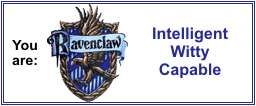Tale of a Whale is a Whale of a Tale.
By Adam Sol
Moby Dick
What do we look for when we read a novel? A gripping story. Memorable characters, who are recognizable but also unique and compelling, even if they are villains. Well-wrought language that occasionally - but not too often - reaches toward the poetic. And perhaps most important, we look for something that takes us outside, or perhaps deeper inside, our own lives. "Spiritual truth" may be too strong a term, but it gets at the essence of our encounter with great art.
The story of Moby-Dick is familiar: Ishmael climbs aboard the Pequod, unaware that Captain Ahab is not just hunting whales, but hunting one whale, the whale, Moby-Dick, an albino monster who had "dismasted" him years before. The fact that the story is so quickly translatable, and has been imitated and parodied so often, is a good indicator of its power.
What you might not know about Moby-Dick is that it is also hilarious, romantic, scientific, satirical and often astonishingly beautiful. There are whole paragraphs that scan in iambic pentameter. There is slapstick comedy. There is romance between Ishmael and Queequeg, the heroic harpooner-cannibal, whose body is covered in tattoos. The Pequod represents a cross-section of humanity that puts contemporary "multicultural" novels to shame. (That is, of male humanity. It must be admitted that while Moby-Dick has enormous amounts to say about a lot of subjects, it has almost no women in it at all. To my mind, this is the only possible reason to keep it off any list of great books, whether that list has 50 books or three.) Ahab's quest is not just the supreme act of revenge, or a hateful death wish. It is also a spiritual encounter with an unjust universe on a scale that rivals the great tragedies of Medea, Oedipus or Lear. For Ahab, Moby-Dick is not just a whale: He is the representative on Earth of that force - God, Fate, the Devil, whatever - that has crippled him and robbed him of his manhood. And because he cannot undo what has happened to him, because he can neither grasp nor accept the spiritual meaning of his fate, he must strike against it. Ahab hunts the whale because he can't throw stones at God.
Meanwhile, we live in the company of Ishmael, a self-proclaimed authority on whales. Much of the humour of Moby-Dick (and much of its length) consists of Ishmael's elaborate and often tongue-in-cheek analyses of whales, particularly sperm whales. It is no small task. Because, like the spiritual realm they seem to represent, whales are ultimately unknowable.
In the end, we sense that Ishmael's quest to understand the whale is no less audacious, no less doomed, than Ahab's quest to destroy it. The powers that are beyond us will always be beyond us, and even someone who has done the scholarly research and "fieldwork" often ends his discourses on the whale with uncertainty. Melville writes: "God keep me from ever completing anything. This whole book is but a draught - nay, but the draught of a draught. Oh, Time, Strength, Cash and Patience!"
Which brings us back to what we're looking for in a novel. When you read the first paragraph of this article, did you agree that you hope for some "spiritual truths" when you read novels? How dare you! Don't you know it's hopeless? But of course, our need to strive for the impossible and the unknowable is humanity's most unique, tragic and heroic character trait.
Moby-Dick aims for the some of the most profound questions about our place in the world. It is also a ripping good yarn, with acts of heroism, humour and daring that still thrill after more than 150 years.
Subscribe to:
Post Comments (Atom)









No comments:
Post a Comment